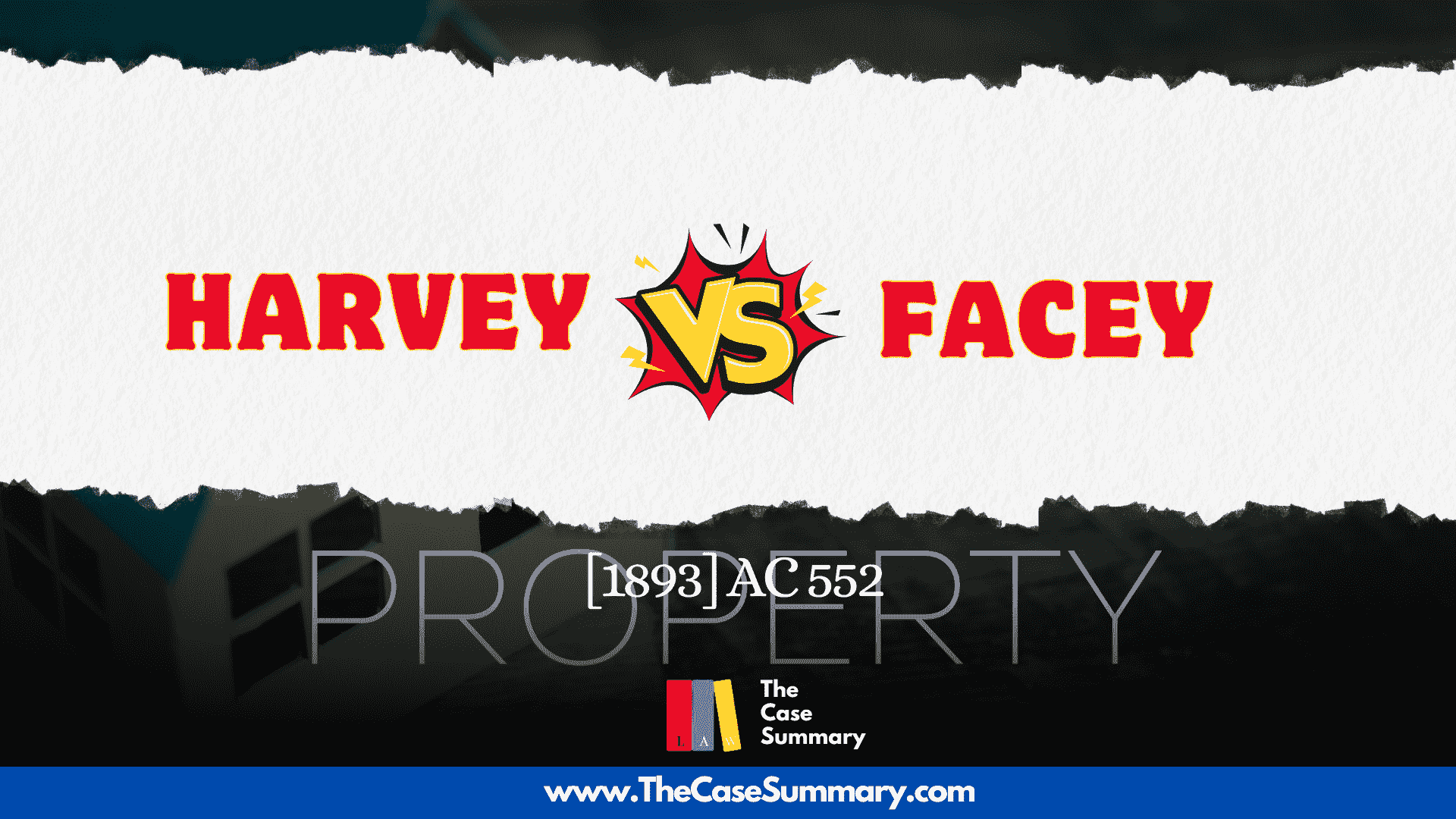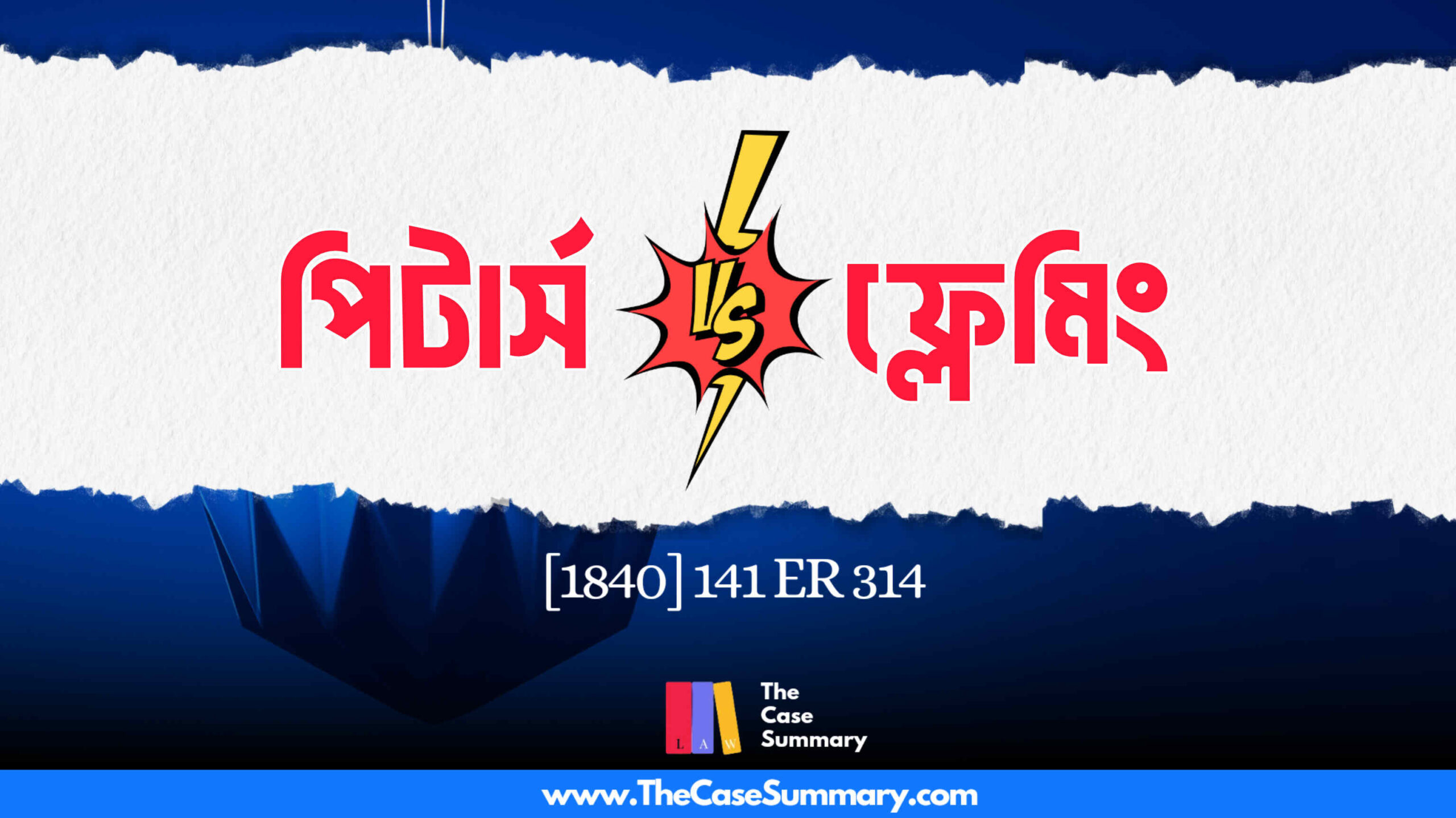Harvey vs Facey
Reference : [1893] AC 552
Jurisdiction : England
Plaintiff : Harvey
Defendant : Facey
Facts :
The defendant, Mr. Facey, was professing a partnership business in Kingston, Jamaica. He owned a property named “Bumper Hall Pen” that he was interested in selling. The plaintiff, Mr. Harvey, sent a telegraph to the defendant asking, “Will you sell us Bumper Hall Pen? Telegraph lowest cash price.” The defendant telegraphed the plaintiff in reply stating, “Lowest price for Bumper Hall Pen, £900.” The plaintiff responded and telegraphed that “We agree to buy Bumper Hall Pen for the sum of £900 asked by you. Please send us your title-deeds in order we may get early possession.” The defendant then did not respond to the telegraph and remained silent. However, in the meantime, the defendant sold the bumper hall pen to another purchaser.
As a result, the plaintiff sued the defendant, alleging breach of contract.
Issues : Was the response given by the defendant stating the price of Bumper Hall Pen an offer or just a mere invitation to treat?
Decision :
The Judicial Committee of the Privy Council ruled in favor of the defendant finding no binding contract that existed between Harvey and Facey.
The Council determined that the initial telegraph that sparked the controversy was the response provided by the defendant, which stated, “Lowest price for Bumper Hall Pen, £900,” constituted an invitation to treat rather than an offer. The statement did not clearly demonstrate any contractual binding. Merely quoting a price, they explained, cannot be interpreted as an offer but rather an invitation to negotiate. For a binding contract to exist, a further negotiation was required, which was absent in the communication made through the telegraph.
It appeared that Mr. Harvey, the plaintiff, believed his response to the defendant’s price quotation that stated that, ❝We agree to buy Bumper Hall Pen for the sum of £900 asked by you. Please send us your title-deeds in order we may get early possession❞ amounted to an acceptance of the offer, which in turn led him to think that a contractual agreement had been formed.
However, the Privy Council clarified that, the first statement of the defendant quoting the price was not an offer but an invitation to treat and Harvey’s reply was actually an offer that still required acceptance from Facey which was never given. The Council emphasized that certain criteria must be fulfilled for a statement to qualify as an offer. These include:
- The offeror must express his willingness to be legally bound by the terms of the offer if it is accepted.
- The offer must be communicated and received by the offeree; uncommunicated offers cannot be accepted.
- The offer must be definite. Any vague or ambiguous statement is incapable of giving birth to a proposal.
In this case, it became evident that, Facey’s response did not constitute any valid offer because there was no intention to be legally bound by the terms. Additionally, no further negotiation happened between the plaintiff and the defendant. The defendant never replied to Harvey’s communication stating that he agreed to sell the property to the plaintiff.
Therefore, the Privy Council ultimately concluded that there was no contractual binding between Harvey and Facey as the essential requirements to constitute an offer were never fulfilled.
Author :
1. Nusiba Hasan Ohee
Note: The Case Summary is a platform by the law students, for the law students. We aim to summarize the facts and decisions of various important cases in both Bangla and English with utmost caution. However, this platform is in no way a replacement for going through the complete judgements by the law students and we discourage any learner from relying on case summaries alone. Thank you



